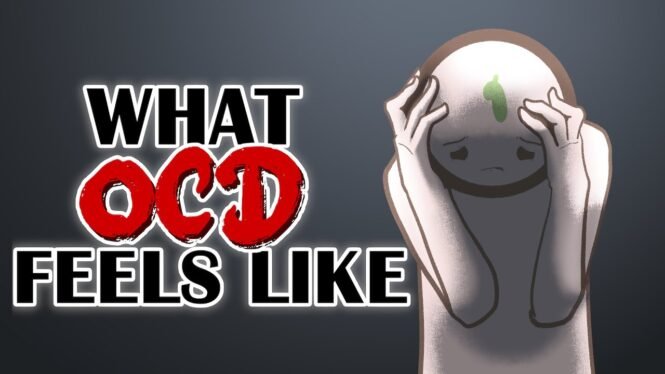As humans, we all have quirks and habits that make us unique. However, some people’s habits and behaviors may become excessive and interfere with their daily lives. Obsessive-Compulsive Disorder (OCD) is a mental health condition that affects millions of people worldwide, making it difficult for them to manage their thoughts and behaviors. In this blog post, we will explore several real-life stories that illustrate the signs of OCD and the impact it has on people’s lives. From checking the locks on doors to counting steps repeatedly, these stories will offer insights into the experiences of individuals living with OCD.
Introduction
Do you ever find yourself double and triple checking locks or switches? Do you obsessively clean or organize things? These behaviors may seem trivial, but they may be signs of Obsessive Compulsive Disorder or OCD. In this article, we will explore the signs of OCD through a personal story.
The Video
Psych2go is a website that creates content to bring attention to mental health conditions. In this particular video, Anjani Tennakoon wrote the script, Amanda Silvera provided the voice-over, and Ray Colon brought the story to life through animation. The video tells the story of a person named PSI, who struggled with OCD and how they overcame it with the right treatment.
The Impact of OCD
OCD affects millions of people worldwide and can interfere with their daily lives. It is a chronic condition that is characterized by obsessive thoughts, compulsions, and repetitive behaviors. These behaviors can be time-consuming, stressful, and may lead to significant distress.
Signs of OCD
What are some signs that you or someone you know may be experiencing OCD? Here are some common examples:
- Obsessions
An obsession is a recurring and intrusive thought, image, or idea that is unwanted and causes anxiety. Examples of obsessions include excessive fear of germs, contamination, or the idea that something bad will happen if a particular ritual is not performed.
- Compulsions
A compulsion is a repetitive behavior or mental act that a person feels compelled to perform to reduce anxiety or distress. Examples of compulsions include excessive checking, cleaning, or organizing behaviors.
- Perfectionism
Individuals with OCD may have high standards and feel that things need to be perfect. This can lead to repetitive behaviors to ensure the perfection they strive for.
- Avoidance
Avoidance is a common coping strategy for individuals with OCD. They may avoid certain situations, objects, or people for fear that they may trigger obsessive thoughts or compulsive behaviors.
Overcoming OCD
With proper treatment, OCD can be managed and overcome. Treatment may include therapy, medication, or a combination of both. It is essential to seek help from a mental health professional to develop a personalized treatment plan.
Conclusion
OCD is a chronic and potentially debilitating condition that affects millions worldwide. It is characterized by obsessive thoughts, compulsions, and repetitive behaviors. It is important to know the signs of OCD and be aware of the impact it can have on a person’s daily life. With proper treatment, OCD can be managed and overcome. Remember, anyone struggling with OCD is not alone, and there is help available.
Frequently Asked Questions
- Can children develop OCD?
Yes, OCD can develop in children, and the symptoms may be different from those seen in adults.
- Is OCD a mental illness?
Yes, OCD is a mental illness that can interfere with daily living.
- What causes OCD?
The exact cause of OCD is unknown, but research suggests that a combination of genetic, environmental, and neurological factors may be involved.
- Can OCD be cured?
There is no known cure for OCD, but with proper treatment, it can be effectively managed and significantly reduce symptoms.
- Can medication help with OCD?
Yes, medication can be an effective treatment for OCD. However, it is essential to work with a mental health professional to find the right medication and dosage for each individual’s needs.
Christopher Conway, the innovative mind behind “Love Blueprints,” is a seasoned relationship expert and author. His insightful guidance, drawn from years of experience and study, offers transformative strategies for modern love and dating. Christopher’s commitment to enhancing romantic connections has made “Love Blueprints” a go-to resource for those navigating the complexities of relationships.




